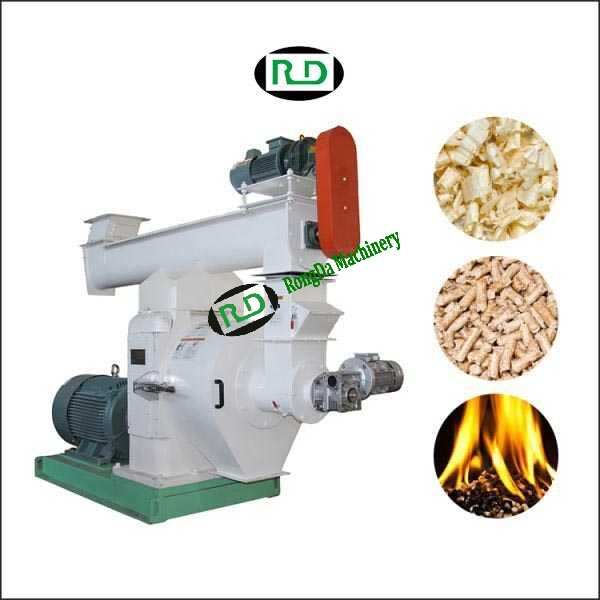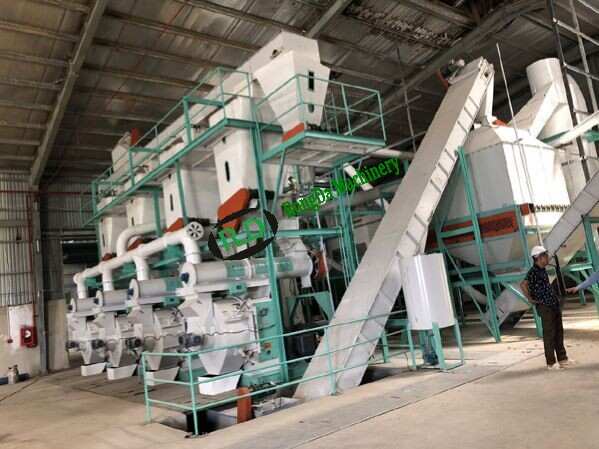Welcome to Rongda Machinery Co., Ltd
Toggle Navigation
In today's rapidly changing world, the need for renewable energy solutions is more pressing than ever before. As both industries and individuals strive to find cleaner alternatives to fossil fuels, biomass pellets have risen to prominence as a viable solution. Thanks to biomass pellet production machines, raw materials can be transformed into efficient, eco-friendly biofuel pellets. This article delves into the numerous benefits of biomass pellets, the technology powering pellet machines, and why investing in this equipment makes sense for businesses and eco-conscious entrepreneurs alike.

Biomass pellets are small, compressed cylinders made from organic materials like wood chips, agricultural by-products, and municipal waste. These pellets provide a renewable and clean energy source, ideal for heating, generating electricity, and even serving as a raw material for various industrial processes. As environmental concerns continue to grow, transitioning to biofuels has become imperative, and biomass pellets play a pivotal role in this necessary shift toward sustainability.
1. Renewable and Eco-Friendly: Biomass pellets are derived from renewable, organic materials. By utilizing resources like sawdust and agricultural waste, biomass pellets reduce waste and foster long-term sustainability.
2. High Efficiency: Compared to conventional firewood, biomass pellets offer higher energy density and generate less ash, resulting in a more efficient combustion process and easier handling.
3. Lower Emissions: Biomass pellets produce fewer greenhouse gases during combustion than fossil fuels, contributing to a cleaner atmosphere and supporting a healthier planet.
4. Economic Benefits: As technology advances, the cost of producing biomass pellets has become increasingly competitive with traditional fuel sources. Investing in a biomass pellet-making machine offers significant savings over time.
5. Versatility in Applications: Biomass pellets can be utilized in a wide variety of applications—from home heating to large-scale industrial boilers—making them an attractive energy solution for a diverse range of industries.
Biomass pellet production machines are essential for converting raw organic materials into usable pellets. The production process typically involves grinding the material, drying it, and then compressing it into uniform pellet forms. These machines are capable of processing various types of biomass, including wood shavings, agricultural residues, and even specially grown energy crops.
These machines enable businesses to efficiently create high-quality, consistent pellets that can be used in heating systems, power plants, and more, supporting the global transition to renewable energy.
When purchasing biomass pellet production equipment, consider these critical factors:
Durability: Opt for machines built to withstand continuous production and offer a long operational life, reducing the need for frequent replacements.
Production Capacity: Choose a machine that aligns with your production needs, whether you’re aiming for small-scale or large-scale operations.
Energy Efficiency: Look for machines that minimize energy consumption while maximizing output, as this will reduce both energy costs and the environmental footprint of your production.
Ease of Use: Machines that are easy to operate and maintain will save you time and reduce labor costs, ensuring smooth and efficient operation.
Reliable Support and Service: Ensure the manufacturer offers excellent customer support, including installation, maintenance, and troubleshooting services.

Several manufacturers specialize in high-performance biomass pellet production machines. Some of the top options include:
Flat Die Pellet Mill: This compact, user-friendly machine is ideal for small-scale pellet production. It’s suitable for processing a variety of biomass materials, such as wood dust and agricultural waste.
Ring Die Pellet Mill: Designed for larger-scale operations, this machine handles a higher volume of raw materials and is known for its efficiency and durability.
Portable Pellet Mills: These versatile machines are ideal for businesses that need flexibility and portability, allowing for on-site production wherever it's needed.
If you’re considering entering the biomass pellet market, follow these essential steps to launch your venture:
Research the Market: Investigate the demand for biomass pellets in your area. Identify potential customers, including residential users, industrial clients, and energy producers.
Choose the Right Equipment: Select a biomass pellet machine that meets both your budget and production goals. Consider factors like initial investment, maintenance costs, and energy efficiency.
Source Biomass Materials: Find reliable suppliers for your raw materials. You may source biomass from local sawmills, farms, or waste management facilities.
Set Up Production Facilities: Ensure you have the necessary infrastructure, such as storage for both raw materials and finished pellets, to support efficient production.
Market Your Pellets: Develop a marketing plan to promote the environmental and economic benefits of biomass pellets, highlighting their role in reducing carbon footprints and providing affordable energy.
Investing in biomass pellet production machines is a forward-thinking move towards a more sustainable and profitable future. As the global demand for renewable energy increases, now is the perfect time to explore the biomass pellet market. By producing high-quality biofuel pellets, you can contribute to a cleaner environment while also building a successful business. Whether you're an entrepreneur or part of a larger corporation, the opportunities in the biomass pellet industry are vast. Take action today and capitalize on the growing potential of renewable energy production.